7 ways the monarchy has changed under King Charles III
Erin McDowell

- King Charles III ascended the throne after the death of Queen Elizabeth on September 8, 2022.
- The king has been more approachable than his mother, accepting kisses from members of the public.
King Charles III is wrapping up his first year as monarch of the United Kingdom.
In the year since Queen Elizabeth II's death on September 8, 2022, Charles has taken on his new role as king in stride with a pared-down coronation and renewed focus on modernizing the monarchy. However, his first year as king has also been marked by a steady decline in positive public perception of the royal family and high-profile anti-monarchist protests.
Here are seven key ways the monarchy has changed under King Charles' leadership.
One of the most obvious changes in the monarchy is the new titles many members of the royal family now have.
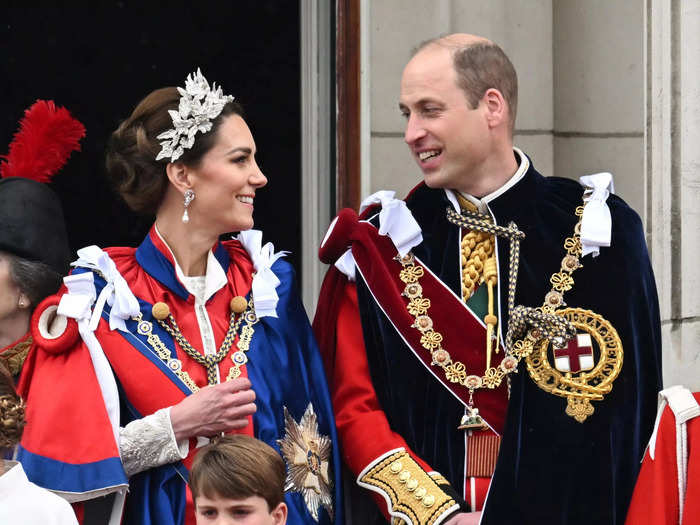
Following the death of Queen Elizabeth, Prince Charles became King Charles III, and he wasn't the only royal to receive a new title.
Prince William and his wife, Kate Middleton, the Duke and Duchess of Cambridge, took on the titles of Prince and Princess of Wales, which were previously occupied by Charles and Princess Diana. Prince William and Princess Kate also became the Duke and Duchess of Cornwall following Queen Elizabeth II's death.
Camilla, previously the Duchess of Cornwall, became Camilla, Queen Consort, and Queen Camilla after she was crowned.
Prince Edward also received a new title as the Duke of Edinburgh, an honor that previously belonged to his late father, Prince Philip. Charles initially inherited the title from their father after his death in April 2021 before passing it on to Edward in March.
King Charles has shown himself to be a more approachable monarch than his mother.
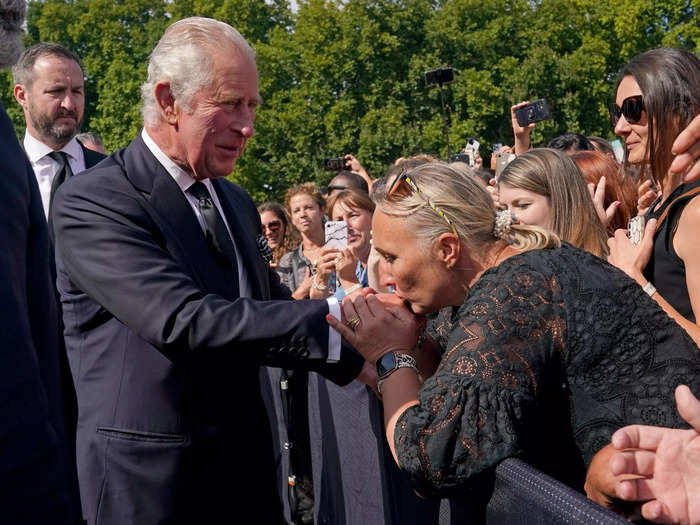
When greeting well-wishers after his mother's death, Prince Charles could be seen conversing with the public and receiving kisses on his cheek and hands — something Royal biographer Andrew Morton says the Queen would have never allowed.
"He lets people kiss him, which the Queen would never do. So there's a different kind of style there," Morton told Insider in November 2022.
Morton also said that Charles' schedule was likely to be busier than the Queen's.
"The Queen was in her 90s and had a very much reduced agenda. The king, I think is going have to go at pace, even though he's 74 himself," he said.
The Washington Post also reported that royal biographer Sally Bedell Smith also described Charles as being a more open leader and a "very good extemporaneous speaker, much better than his mother."
Charles has also taken steps to be an inclusive leader and has taken a stand on humanitarian issues.
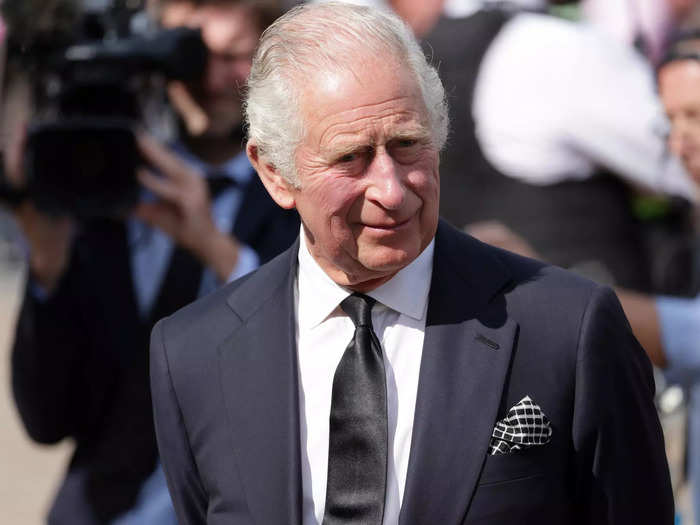
Insider previously reported that on September 16, 2022, following his mother's death, Charles invited faith leaders from multiple religions to Buckingham Palace.
According to a press release, Charles told them that he considered it his duty to "protect the diversity of our country" and that he "thought of Britain as a 'community of communities.'"
In February, the king also directly condemned Russia's "unprovoked full-scale attack" on Ukraine in a press statement, adding that "the world has watched in horror at all the unnecessary suffering inflicted upon Ukrainians."
The Queen avoided speaking publicly about the war in Ukraine.
His coronation was noticeably pared down compared to his mother's.
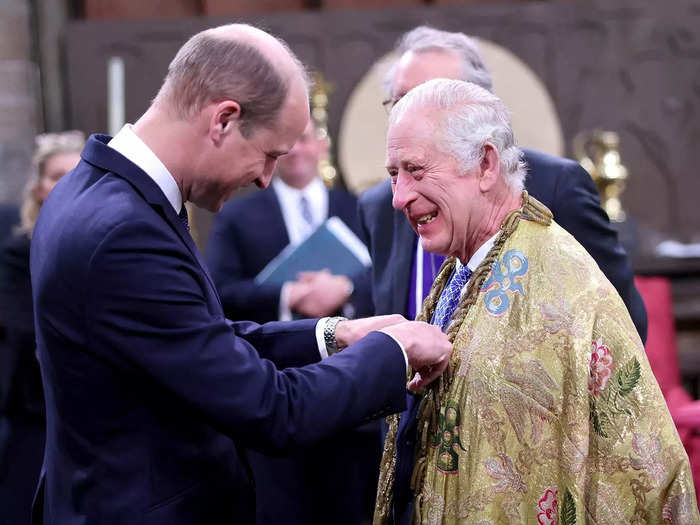
While still estimated to cost in the tens of millions, the BBC reported, the coronation had a guest list with just over 2,000 attendees, compared to the 8,000 that attended Queen Elizabeth's coronation in June 1953. Time reported that the ceremony and processional were also shorter for King Charles' coronation compared to his mother's.
Reports have said that Charles wants to do away with a lot of the pomp and circumstance that has become synonymous with the royal family in an effort to modernize the monarchy and focus on the key royal family members.
The Times of London reported in 2019 that Charles intended to include just seven key working royals, although that plan has not yet come to fruition. According to the royal family's website, there are 11 official "working royals" who work for the monarchy full-time.
The Washington Post also reported in September 2023 that Charles hasn't made any significant changes in regards to how much the royal family earns, and that the taxpayer-funded stipend allotted to the royals remains unchanged.
As the future king and queen, Prince William and Kate Middleton appear to be stepping up their roles, while shirking the family drama that's followed them for years.
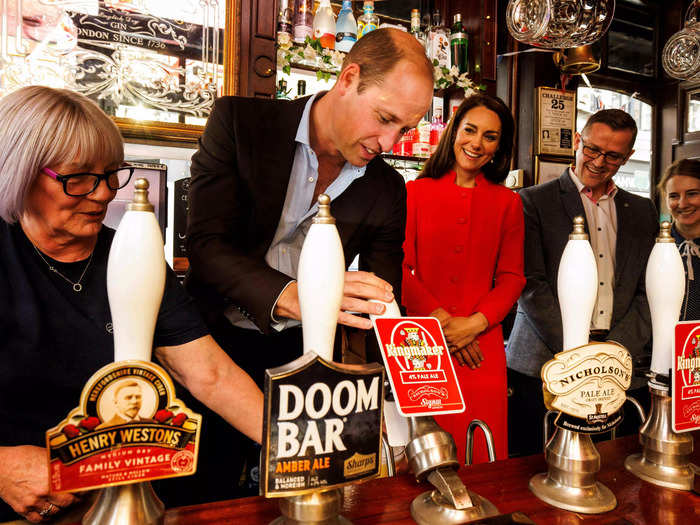
As heir apparent, William has become an increasingly important member of the royal family since his father's crowning, and he and Kate are key figures in keeping the monarchy relevant and modern.
Before the coronation, William was photographed pouring a pint of ale and riding on the new Elizabeth subway line with his wife, the Associated Press reported.
William has also taken on his father's advice to "lead our national conversation" on environmental issues through his continued work with the Earthshot Prize, an award given to environmental innovators.
Prince William's appeal appears to be growing since his father took the throne. According to a poll conducted by Ipsos for the Evening Standard following the coronation, his satisfaction rating among the public rose 11 points from before the coronation to 73%.
Charles himself has also traditionally taken a more casual approach to royalty than his mother — he's been photographed candidly over the years wearing balloon hats, drinking beer, and even dressing up as a cheesemonger.
However, Charles' former adviser Kristina Kyriacou told ITV's royal editor Chris Ship that Charles hasn't gone to great lengths to modernize the monarchy during his first year as monarch, and instead, he's looking to Prince William to do so.
"The king will be thinking to himself, 'My son will be able to be more modern than I could ever be,'" Kyriacou told Ship on Thursday. "It is William — when King — who'll be the big reformer of the monarchy."
However, it's not all smooth sailing for the royals. An April survey found that King Charles' approval rating had fallen slightly since he took the throne.
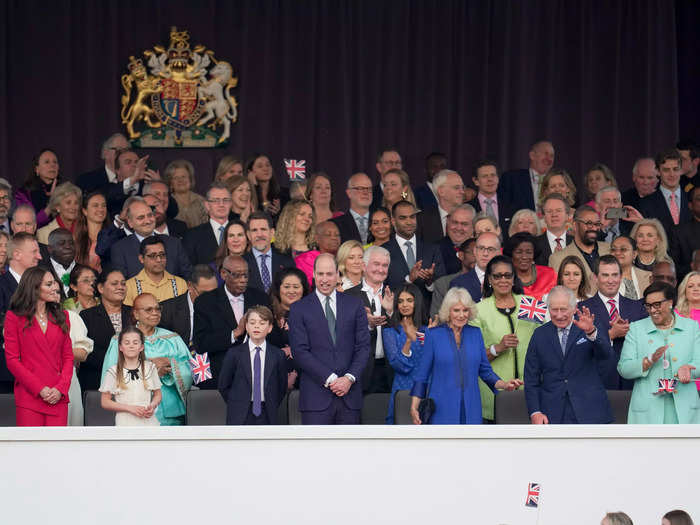
Reuters reported in April that an Ipsos poll found 49% of the public believed Charles was doing a good job, down from a 61% approval rating in September 2022 after he succeeded his mother Queen Elizabeth.
CNN also reported that a survey conducted by polling company Savanta in May 2023 found that more than one-third of UK adults say their opinion of the royal family has become more negative in the past 10 years.
According to the report, 21% of those surveyed said their views on the royal family had gotten more positive over the past decade, while another 41% said their overall opinion of the royal family has stayed the same.
Only half of UK adults reported that they were interested in watching the coronation of King Charles and Queen Camilla, and only 20% described themselves as "very interested" in the coronation.
Anti-monarchist protests also appear to have gained traction in the year since Charles took the throne.
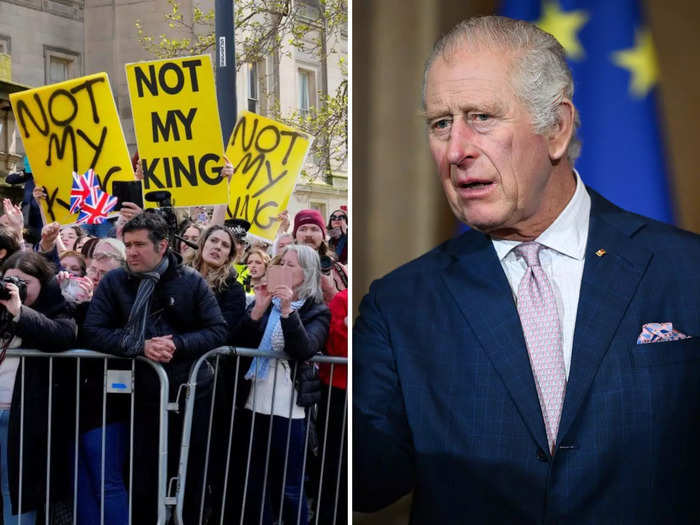
Protests against the royal family are nothing new — Prince William, Kate Middleton, Queen Elizabeth, and other royals have all been on the receiving end of anti-monarchist demonstrations over the years.
Queen Elizabeth was greeted by discontented crowds in Quebec in 1964, and four protesters were arrested and charged with disorderly conduct when then-Prince Charles visited New York City during "The Troubles" in 1981.
William and Kate also faced protests while on their 2022 Caribbean royal tour marking Queen Elizabeth's Platinum Jubilee, and even had to cancel the first stop of the tour in Belize after locals organized a protest against the royals.
However, a new wave of protests has picked up speed since the death of Queen Elizabeth and the ascension of Charles to the throne.
In November 2022, Charles and Camilla narrowly avoided getting egged by a protester while visiting York. The eggs were thrown at them by an individual who was reportedly detained by police.
Republic, a group that's campaigning to have the British monarchy abolished in favor of an elected head of state, has taken on the use of the phrase "Not my king!" to express discontent with the monarchy, Insider's Mikhaila Friel reported in July after she attended a protest in Scotland that witnessed hundreds of anti-monarchist protesters.
Popular Right Now
Popular Keywords
Advertisement